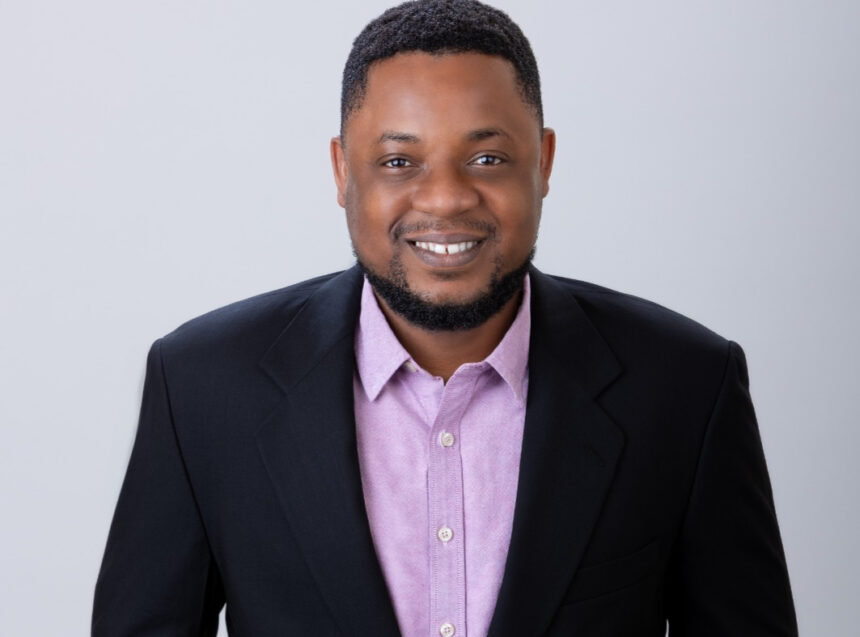Francis Chukwudi Eze is a civil engineer whose journey spans resilient water systems and telecom infrastructure— two vital pillars of civil engineering — bridging continents and specialties with one goal: building systems that serve people. With a career that spans water systems and telecommunications, his work reflects a rare blend of technical expertise, leadership, and purpose.
In this exclusive interview, Francis shares his motivations, challenges, and vision as a next-generation infrastructure leader.
Q: Can you tell us about your early journey and what inspired your career in civil engineering?
Answer: I grew up with a deep appreciation for how basic infrastructure shapes lives. In Nigeria, I saw communities transform when access to clean water or stable roads became available. That foundational impact drew me to civil engineering. I earned my bachelor’s degree in civil engineering with a focus on water resources and infrastructure from the Federal University of Technology, Owerri, and began my professional journey managing water infrastructure projects. It was both humbling and empowering to work on systems that directly shape health outcomes, safety, and community development.
Q: You’ve worked in both water resources and telecom infrastructure. How did that transition happen?
Answer: The shift was natural rather than abrupt. After moving to the U.S. and completing my master’s degree at Michigan Technological University, I became even more interested in scalable infrastructure solutions. At first glance, water and telecom might seem like separate domains, but both are essential components of civil engineering. They rely on similar principles of system design, resilience, and infrastructure planning—and both have direct, lasting impacts on communities. Today, I manage tower and wireless infrastructure projects at Engineered Tower Solutions, where I lead deployments that support connectivity and public safety communication systems across multiple states.
Q: What would you say has been your most impactful contribution so far?
Answer: That’s a tough one. Every project carries its own value, but I’m particularly proud of the role I play in ensuring the reliability of telecom towers that support public safety communication systems as well as broadband access in both urban and rural areas. Being the preferred resource and lead review engineer on several critical projects—including deployments in Illinois and Missouri—has allowed me to influence how modern infrastructure reaches communities. I see infrastructure as a human need, not just a technical pursuit.
Q: You’ve been recognised by leaders in academia and industry. How important is peer validation to you?
Answer: It matters because it validates that the work is not only useful but meaningful. I’ve been fortunate to earn the trust and respect of academic mentors and industry leaders—from ETS to American Towers—who’ve acknowledged the relevance and reach of my work. It’s not about the recognition itself, but about knowing that the people I work with see the value in what we’re building together.
Q: How do you balance fieldwork with leadership and certification goals?
Answer: With purpose and planning. I’m certified in OSHA 30, stormwater design, resilient water infrastructure, and 5G infrastructure planning, and I’m actively pursuing my Professional Engineer (PE) license. I was also formally inducted into the Order of the Engineer through a professional oath of ethics. I am also a member of the American Society of Civil Engineers (ASCE), the Environmental & Water Resources Institute (EWRI), and the National Society of Black Engineers (NSBE). I believe continuous growth is essential. Technical expertise is one thing, but leadership in infrastructure also means being a steward of safety, ethics, and long-term impact.
Q: What advice would you give young engineers looking to make a lasting impact?
Answer: Start with service. Infrastructure is ultimately about people. Learn the fundamentals, seek mentorship, and never lose sight of the communities you’re serving. Also, don’t be afraid to diversify your experience. I began in water systems and now contribute to wireless infrastructure—but in both, I’m still solving human problems.
Q: What’s next for you in your career?
Answer: I’m exploring how I can continue contributing at a higher level—not just on individual projects but in shaping broader infrastructure policy and education. I’m passionate about resilience, sustainability, and ensuring that both developing and developed regions have access to safe, future-ready systems. Wherever that path takes me—whether through leadership, research, or public impact—I remain committed to making engineering matter where it counts most.
ALSO READ TOP STORIES FROM NIGERIAN TRIBUNE






